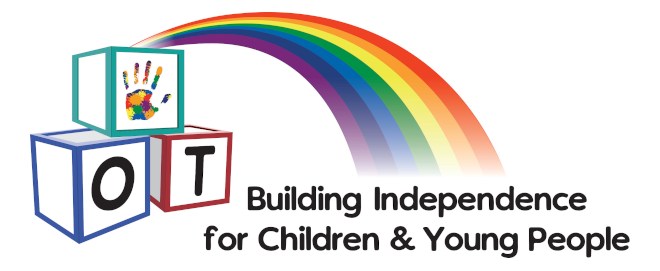
Occupational Therapy Children & Young People
Occupational Therapy Children & Young People

What is Occupational Therapy?
Occupational Therapy enables people to participate in daily life to improve their health and wellbeing. Daily life is made up of many activities (or occupations). Occupations for children and young people include self-care, being productive (attending nursery or school) and leisure.
Occupational Therapists help babies, children and young people who may need support and advice if they are not able to do their occupations due to illness, disability or family circumstances.
How does an Occupational Therapist help a child or young person?
The first step is to identify and understand the child’s usual occupations to discover what difficulties they face. They will offer support to relevant people (i.e. parent/guardian, teachers) to evaluate the child’s challenges and strengths to help them to do those occupations that are important.
The Occupational Therapist may:
- Suggest alternative ways of doing things
- Provide advice on learning new approaches and techniques
- Help a child practice an underlying skill to promote success with an activity
- Recommend changes to the environment i.e. using equipment or adaptations.
There is a range of possible ways of supporting a child or young person. There has been a change in the delivery of our service since August 2018 based on legislation. Ready to Act ambitions highlight a need for a move towards universal services. Partnership and Integration and Access have been key in changes to service provision – moving towards an increase in collaborative working and providing the right help at the right time from the right people and providing an equitable provision for all.
Services we are able to offer
Occupational Therapy services we are able to offer to children, young people, their families and education staff are as follows;
Advisory Clinic
Consultation between therapist and parent to address a specific difficulty, often with an activity of daily living or sensory issue.
Education Programme
Monthly ‘free’ training sessions provided to teachers to present information and advice on areas of difficulty within the classroom that schools request assistance for. Presentations delivered currently: sensory difficulties within the classroom, handwriting, and motor skills.
Life Skills Drop in Session
Consultation between therapist, parents and child or young person. This could address specific difficulties that may have an impact on your child’s independence with a variety of activities of daily living, such as shoe lace tying, self-care and meal prep.
Motor Skills
Attended by child/parent to target the needs of children with mild/moderate motor skill difficulties. Alongside this, programmes have been developed for schools and nurseries to run. Support can be provided to set these up.
Individual Appointment
A clinical decision will be made by a therapist based on the information from the request for assistance to determine if a child requires an individual appointment; this could be a clinic assessment, home or school visit.
Workshops For Parents
Free information workshops provided to parents and carers addressing difficulties your child may face day-to-day. Workshops delivered currently are:
Sensability (general sensory advice), Doodlebugs (early writing), 1,2 I Can Do (Early developmental workshop).
Your Feedback – comments, concerns and complaints
NHS Lanarkshire is committed to improving the service it provides to patients and their families. We therefore want to hear from you about your experience. If you would like to tell us about this please visit our feedback page.


